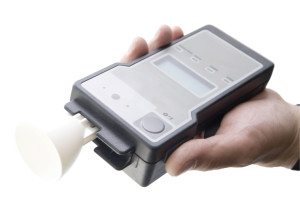Free Consultation
Available 24/7 for Immediate Help
(614) 263-5297

You might find it surprising, but there are many ways you can challenge a blood alcohol test in court. There are three main ways blood alcohol content (BAC) is measured aside from field sobriety tests.
Urine tests are considered to be the least accurate out of the three ways to test BAC. Alcohol in urine is 1.33 times the level in blood, so the rule of thumb is to divide the result by 1.33. This, however, can be argued is a too generalized approach for every person when people can differ biologically. Urine tests can be challenged also because of equipment failures, administration issues, chain of custody issues, and failure to substantiate evidence in court.
The blood test to determine BAC is considered the most reliable way to determine BAC, although not infallible. It is tough to challenge this, but it can be done. For example, if it can be challenged if there was:
Blood tests can be done at medical facilities, at the police station, or in special police vehicles at DUI checkpoints.
It is worthwhile to challenge urine and blood tests. A good example is a case coming out of Lancaster, Fairfield County, Ohio. The 21-year-old defendant crashed his motorcycle into a parked car. His blood test result was 0.16. A motion to suppress the results of the blood test were filed. The phlebotomist failed to show up and testify (twice) resulting in a favorable plea agreement and no conviction for OVI. The shows the benefit of challenging a blood or urine test because of all the people who have to show up and testify about the chain of custody and the myriad Ohio Department of Health regulations for handling samples.
The blood alcohol test most people think about is the breathalyzer test. The breathalyzer test is usually administered after someone is pulled over on the road and is suspected of a DUI.
 If challenging the result, typically the person who administered the test is questioned about the circumstances of the test including whether or not they followed the correct procedure in administering it. Witnesses may be asked for statements and expert witnesses can be called upon to illuminate what the accepted practices are for keeping the equipment in good working order, how to give the test, and what circumstances raise red flags. It could also be helpful if you have witnesses who can testify that the amount you drank does not correspond to the results.
If challenging the result, typically the person who administered the test is questioned about the circumstances of the test including whether or not they followed the correct procedure in administering it. Witnesses may be asked for statements and expert witnesses can be called upon to illuminate what the accepted practices are for keeping the equipment in good working order, how to give the test, and what circumstances raise red flags. It could also be helpful if you have witnesses who can testify that the amount you drank does not correspond to the results.
The results of a breathalyzer test are not always reliable, and there are a number of reasons for this:
If you have been charged with a DUI and would like to find out if your blood alcohol test could be kept out of court, contact our Columbus criminal defense lawyers today for a free, confidential consultation at (614) 263-5297 or fill out our online form.
© 2026 Wolfe Legal Services
View Our Terms & Conditions | Privacy Policy
Website Maintained and Hosted by Adamedia & Adam The Computer Guy